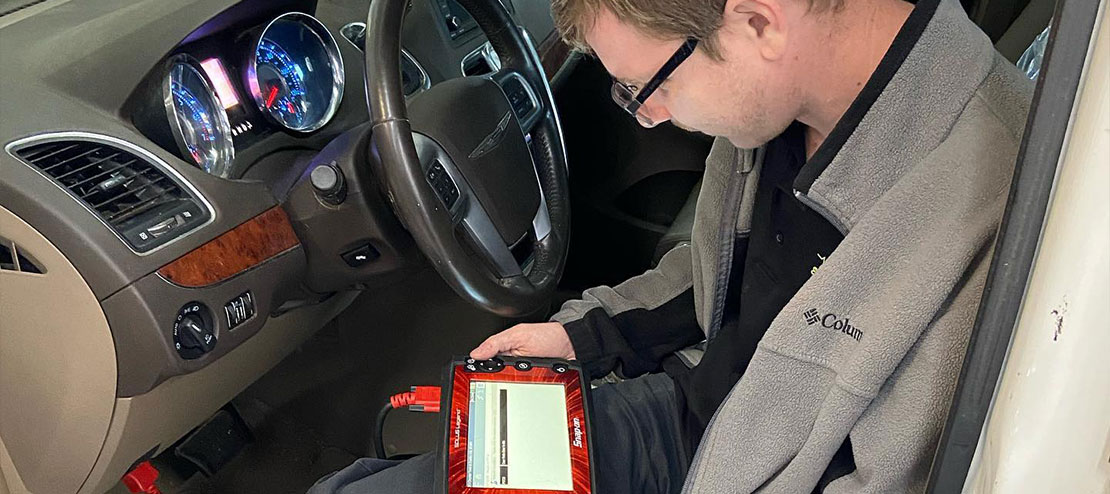
Is your check engine light shining brightly? Or does something simply feel a bit off about how your car runs and drives? No matter what’s going on, diagnostic tests can help you get to the heart of the problem. The testing procedures reveal what’s causing all the ruckus, potentially saving you a whole lot of time, money, and effort.
Ready to learn all you need to know about auto diagnostics? Here’s an inside look at this important service.
Auto diagnostics are all the tests your trusted auto technician uses to figure out why your car doesn’t start up, run, and drive as expected. These tests range from basic pressure tests to digital scans that pull information from your car’s onboard computer.
When you come to the shop, a technician leverages extensive training and knowledge to determine which tests to perform. Then, they pull out the high-tech scanners and other specialty tools to complete each test as deemed necessary for the problem at hand.
Through that process, your technician avoids having to throw parts at the problem in an attempt to fix it. Their findings will point you in the right direction so you can make the absolute best auto repair decisions every time.
Any time your check engine light or other dashboard warning lights come on, it’s definitely time for car diagnostics. These lights directly connect to the onboard computer, which turns them on when problems, large and small, need prompt attention.
Other signs you need to come in for auto diagnostics include:
If your car simply doesn’t run and drive how you might expect, performing car diagnostics is a great place to start. The diagnostic process will reveal what’s going on with your vehicle, so you can decide how to proceed with its care.
The vehicle diagnostic process varies depending on the symptoms reported to your mechanic. They’ll usually bring your car into the shop and perform an inspection first.
After that, they’ll hook your car to a scanner, if deemed appropriate, and see if there are any trouble codes. Upon doing some research, they may decide to perform additional tests with their scanner or other tools, like fuel pressure gauges, compression testers, or oscilloscopes.
Once they track the problem, you’ll get a full report showing their findings and repair recommendations. If you have any questions, just let your service advisor know, and they’ll help you better understand what the diagnostic tests revealed.
When car troubles arise, auto diagnostics can lead you to the solution—and our team at Griffis Automotive Clinic is here to help. At our auto repair shop in Groveland, FL, we have all the advanced tools and knowledge needed to figure out just what’s going on with your vehicle. From there, we can provide our expert repair recommendations and help you find a good time to get on the schedule.
If you’re ready to get started, simply dial (352) 243-2277 to get in touch with our team. We’re also available at 1508 A Max Hooks Rd Groveland, FL 34736 if you’d like to see our shop before scheduling your visit.
We look forward to helping you get the quality diagnostic and repair services you need, so please feel free to reach out anytime.

visibility_offDisable flashes
titleMark headings
settingsBackground Color
zoom_outZoom out
zoom_inZoom in
remove_circle_outlineDecrease font
add_circle_outlineIncrease font
spellcheckReadable font
brightness_highBright contrast
brightness_lowDark contrast
format_underlinedUnderline links
font_downloadMark links